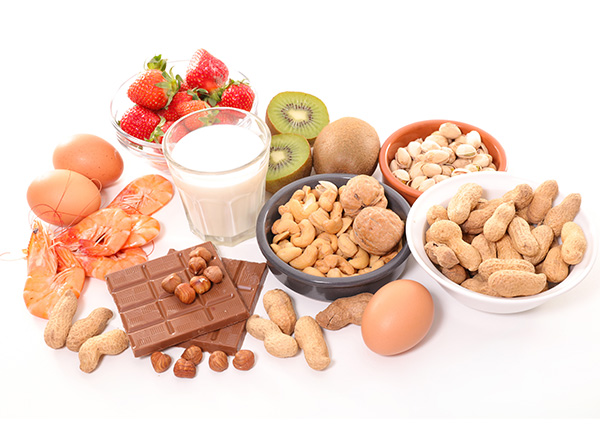
Food Allergies 101 & Safe Substitutes
Did you know that 32 million Americans have food allergies? Food allergies cause certain foods to kick the immune system into overdrive, resulting in allergic reactions that range from mildly uncomfortable to life-threatening.
There are eight common food allergies: peanuts, tree nuts, fish, shellfish, milk, wheat, soy and eggs. While allergies to milk, eggs, wheat and soy are often outgrown, peanut, tree nut, fish and shellfish allergies tend to be lifelong.
How to Avoid Allergic Reactions
Avoiding allergic reactions begins with knowing where to find culprit foods; label reading becomes essential, as does knowing how food is made. Purchasing prepared food or dining out can be risky due to the possibility of cross-contamination between safe foods and allergenic foods. Many people feel the best way to avoid reactions is to prepare food at home from simple, safe ingredients.
The only way to prevent an allergic reaction is to avoid triggering foods, but accidents can happen. Recognizing allergic reactions and knowing how to treat them quickly is crucial – and may be lifesaving. Look for symptoms like red, blotchy, itchy skin that may contain raised bumps called hives, swelling of the lips, tongue or face, as well as vomiting or difficulty breathing. Visit your doctor to stay informed about your allergies and always keep antihistamine or prescribed epinephrine with you in case a reaction occurs. Being prepared at all times helps to alleviate the stress of living with food allergies.
When you have food allergies, food preparation can be tricky, but that doesn’t mean it’s impossible. Here are some easy substitutions for common allergies.
Milk: Almond, oat, rice, coconut and soy milk are all great replacements for their dairy counterparts.
Eggs: Bananas or applesauce replace eggs in baking applications while pumpkin or squash purée work as replacements for savory recipes. Aquafaba – the starchy liquid that chickpeas are cooked in – is another excellent egg replacement; use 3 tablespoons aquafaba per 1 large egg.
Peanut Butter: Try one of peanut butter’s nutrient-dense cousins like almond butter, cashew or hazelnut butter. If you need to go completely nut-free, turn to sunflower seed butter or tahini.
Wheat: Safe wheat substitutes include alternative flours like buckwheat or rice flour, chickpea or brown rice pasta and gluten-free breads and oats.





